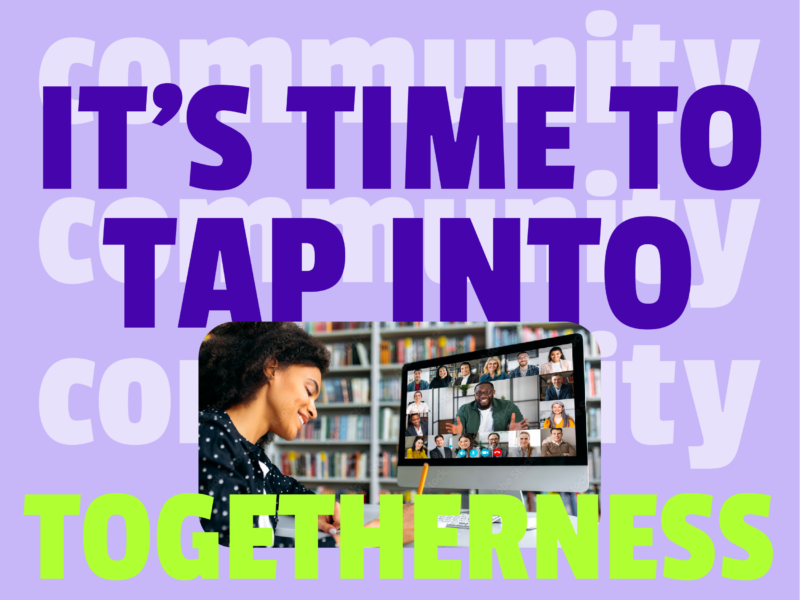Coaching is quite a powerful tool, for personal and professional growth. For this to be the most effective, a coach must place a high priority on building trust in coaching relationships. This enables the client to get the most out of each coaching session and feel comfortable disclosing sensitive information to a person they don’t know very well.
That said, starting an online coaching business can be tricky, so we’re here to discuss pointers on how building trust in coaching can be made possible.
- What is Online Coaching?
- The Benefits of Online Coaching
- The Importance of Building Trust in Coaching Relationships
What is Online Coaching?
Traditionally, clients and coaches meet once or twice weekly (or even monthly) to discuss progress, goals, and objectives. Online coaching means client and coach meet virtually through mediums such as Skype, Google Hangouts, FaceTime, and Zoom. Although this is extremely convenient and accessible – meeting online takes away the natural trust that builds by physically being with another person. That’s why building trust in coaching relationships online is imperative – now more than ever!
Millions of individuals are now choosing online coaching because it’s more flexible, has no geographic limitations, and provides greater access to amazing coaches. This is evident in different specializations, including nutrition, business, fitness, or life coaching, amongst others. Demands and expectations vary. Depending on the area of expertise, clients may require assistance to advance their professions, achieve personal objectives, expand their companies, or create healthy behaviors. Many online coaches prefer to follow a pre-set program template to effectively cater to such needs and give a quality customized experience.
Related: Mentoring vs Coaching vs Training: What’s the Difference?
The benefits of online coaching
Online coaching reaps endless benefits. With the proper guidance, clients can obtain the needed support to accomplish their goals without wasting time traveling for a session or being constrained to only a short list of local coaches.
Connecting remotely is especially vital if the coach travels frequently or has another profession. Also, online coaching sessions make short-notice appointments possible, which may be extremely handy for someone needing to talk urgently.
Related: How to Plan a Productive Coaching Session (Free Coaching Session Template)
How to build trust in a coaching relationship
Building trust in coaching relationships is fundamental for a successful client experience. It’s the foundation on which all other elements build; without it, progress can be easily compromised.
Here are some techniques for building trust in coaching relationships.
Be committed to your clients
Being trusted by clients relies heavily on the coach’s ability to demonstrate their commitment. After all, it’s the coach’s responsibility to ensure their client’s happiness and wellbeing. By not being entirely devoted to the cause, a coach may not be able to connect with them as deeply, which may hinder the capacity to provide a good experience.
Identify problematic patterns
Sometimes, although clients do trust the person on the other side of the screen, they still refuse to reveal issues critical to effective coaching. This may be due to both unconscious and conscious factors. Coaches must do their best to assist their clients in becoming more self-aware and self-confident in order to understand and identify underlying issues, which is vital if they wish to achieve the best possible outcomes.
Studies have been carried out on the significance of determining underlying causes to impact someone profoundly. According to a Harvard Business Review article, it’s imperative to track out the root causes of negative patterns of behavior that stand in the way of achieving desired outcomes.
HBR points out that the leading causes might be challenging to identify because of their complexity and often-hidden nature. Moreover, an attempt to change one’s external behavior without addressing the underlying issues is unlikely to produce a long-term fix, as shown by a meta-analysis of perfectionistic mindsets.
Show empathy
A coach can show empathy in several ways, but one of the most effective is asking questions. Asking what the client needs or how they feel about a particular situation will help in building trust in coaching and make the client feel more comfortable.
It’s also important to remember that how a coach speaks matters just as much as what is being said. Therefore, a coach must ensure that their tone of voice shows warmth and care. A stern or cold one can harm their ability to connect with clients. From a coach’s perspective, when utilizing this strategy, it’s a good rule of thumb to ‘listen more than you speak’ unless asked for comments or recommendations.
Mirror the client’s style
Mirroring is a way to appear more trustworthy, respectable, and likable. When you reflect on another person’s facial expressions, you’re showing that you are actually paying attention to what they have to say. It’s undoubtedly an approach to show them what they say does matter.
Mirroring comes with several advantages:
- It makes it easier for coaches to build relationships with clients since they feel they are being heard and understood.
- It demonstrates empathy and connection.
Be passionate about something in your life
This technique is simple yet highly effective. If a coach is passionate about something in their life, they should use it as leverage. It’s as simple as it sounds. Others will notice and respond positively to the energy when someone is excited about something. People want to be around people who are driven, enthusiastic, motivated, and happy. Passionate individuals inspire others because they exude confidence and enthusiasm for their lives – which is extremely contagious!
Related: Build a Coaching Program in 7 Steps (Free Coaching Program Template)
Wrapping it up
To be an exceptional coach, you must establish a relationship of trust with your clients. In the meantime, continue learning and improving your skills, and keep in mind that the best approach to building trust is to get to know your clients on a personal level. Trust will build naturally as you showcase your ability to help clients achieve their goals.
Here’s your next read to get you started for anyone new to coaching!







